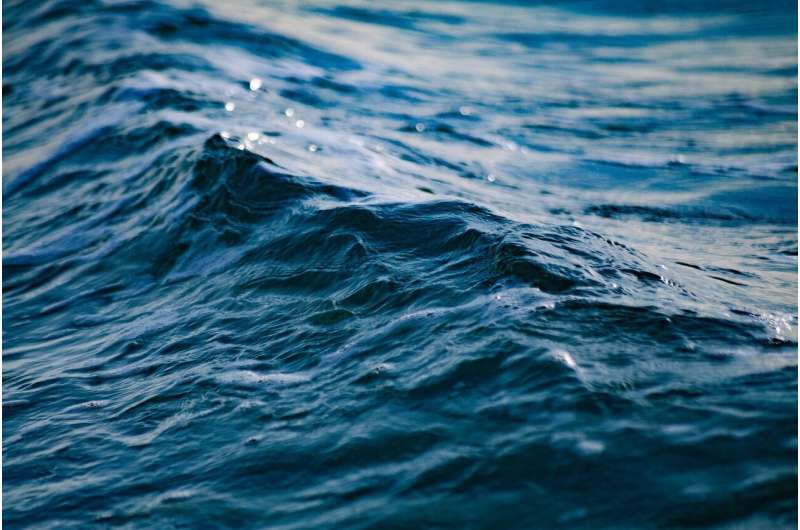Credit: CC0 Public Domain
Researchers from the University of Manchester are using synthetic biology to explore a more efficient way to produce the next generation of biobased jet fuels—partly made from seawater.
The Manchester research group, led by Professor Nigel Scrutton, director of the Manchester Institute of Biotechnology (MIB) and supported by the prestigious US-based international maritime research agency Office of Naval Research Global (ONR), is using synthetic biology to help identify a more efficient and sustainable method to make biofuel than the one currently used.
Scientists have discovered that the bacteria species called Halomonas, which grows in seawater, provides a viable "microbial chassis" that can be engineered to make high value compounds. This in turn means products like biobased jet fuel could be made economically using production methods similar to those in the brewery industry and using renewable resources such as seawater and sugar.
The breakthrough behind this approach is the ability to re-engineer the microbe's genome so to change its metabolism and create different types of high value chemical compounds which could be renewable alternatives to crude oil. Dr. Benjamin Harvey and his team of researchers at the world-leading Naval research facilities in China Lake, California, U.S., have pioneered this exciting work on converting biological precursors to relevant jet fuels.
Following on from this research, Professor Nigel Scrutton explained, "Effective biofuels strategies require the economic production of fuels derived from a robust microbial host on a very large scale—usually cultivated on renewable waste biomass or industrial waste streams—but also with minimal downstream processing and avoids use of fresh water. With Halomonas these requirements can be met, so minimizing capital and operational costs in the production of these next generation biofuels."
This research could be groundbreaking news for the wider biofuels industry. "In the case of the jet fuel intermediates we are bioproducing, they are chemically identical to petrochemical derived molecules, and will be able to 'drop-in' to processes developed at China Lake," added Dr. Kirk Malone, director of commercialization at The University of Manchester's MIB.
Dr. Malone said unlike the biofuels we know today, which are dependent on agricultural land to produce corn and sugar beets, bioproduction in seawater would avoid ethical concerns of 'fuel vs food." Moreover, the final products would be identical to today's fuels, allowing automobiles to maintain the same high performance standards without having to redesign the engine to consume lower quality fuels.
Also of interest for the University of Manchester is the application of this process to many other diverse industries, specifically those that rely on crude oil to generate a wide array of products such as cosmetics, fragrances and flavors.
"For example, if you think about rosehip oil extraction—you need to plant hundreds of acres of flowers and then collect the flowers, squeeze the oil from the rose petals to process minute amounts for making the fragrance," explained Patrick Rose, science director for ONR Global in London.
"It is economically very expensive, land and resource intensive, subject to the climate for harvesting, when those resources could instead be employed for more sustainable agriculture
"It is possible to replicate the exact same molecules we harvest from crops to make high value compounds by exploiting this biological process by taking the genes out of the plant and inserting the information into bacteria. With this engineering feat, there is no dependence on environmental factors and an increased level of reliability in the product."
Provided by University of Manchester
























